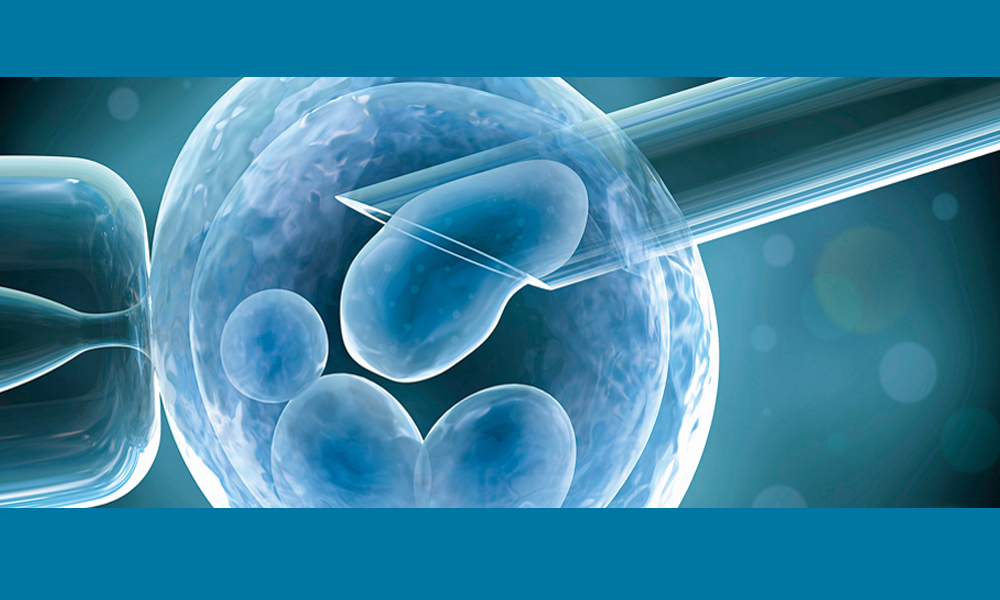
In vitro fertilisation (IVF) has emerged as a boon for people facing infertility issues that can be attributed to a variety of factors. Dr. Rajni Khajuria, Laboratory Manager, IGENOMIX India, a company that provides advanced services in reproductive genetics, in this article provides a complete overview of IVF success factors that can help or hinder pregnancy
In vitro fertilisation (IVF) is a type of assisted reproductive technology (ART), which involves fertilisation of an egg and sperm in laboratory dish and then the embryo is transferred to the uterus. IVF can be used to treat patients with infertility, which can be due to blocked or damaged fallopian tubes, male factor (decreased sperm count or sperm motility), ovulation disorders, premature ovarian failure, uterine fibroids, etc. IVF can also help the individuals with genetic disorders and with unexplained infertility. So, before you make that important decision you need to factor in the following to enjoy the blessings of parenthood:

Age

 Age and quality of your eggs/sperms is very important factor for the success of IVF. Women in younger age (below 35 years) have higher chances of IVF success. As you age, the quality and quantity of your eggs also decreases, which can reduce the chances of IVF success. In fact, in live births, IVF success rate for women below 35 is 40 per cent. However, the success rate is only 4 per cent for women over the age of 42. In women over the age of 38, 79 per cent of embryos have chromosomal abnormalities. The risk of this age group suffering from chromosomal abnormalities is 30 per cent.
Age and quality of your eggs/sperms is very important factor for the success of IVF. Women in younger age (below 35 years) have higher chances of IVF success. As you age, the quality and quantity of your eggs also decreases, which can reduce the chances of IVF success. In fact, in live births, IVF success rate for women below 35 is 40 per cent. However, the success rate is only 4 per cent for women over the age of 42. In women over the age of 38, 79 per cent of embryos have chromosomal abnormalities. The risk of this age group suffering from chromosomal abnormalities is 30 per cent.

Previous pregnancy/ recurrent miscarriage

IVF success factors include previous healthy pregnancy and if it was with the same partner. Factors such as recurrent miscarriage or a different partner may reduce IVF success rate.
Type of fertility problems
While some male infertility problems do impact IVF success, factors like uterine abnormalities, exposure to Diethylstilbestrol (DES), low sperm concentration or fibroid tumours also decrease the success rate of IVF. IVF success factors are dependent on ovulation. Ovarian dysfunction, like high FSH levels which indicate a low ovarian reserve, may also reduce the chances of successful IVF. When both partners are infertile, chances for IVF success becomes low. The factors such as the length of time you have been infertile is also important.
Lifestyle habits
Many a times the woman is required to stop smoking at least three months before starting IVF treatment. Women who smoke require higher dosages of fertility drugs to stimulate their ovaries and are the ones who experience more failed fertilisation cycles.
Precaution is better than cure!
Preimplantation genetic screening (PGS) is a powerful test that may be performed on embryos during IVF treatment to screen the numerical chromosomal abnormalities. PGS is performed on a small embryo biopsy prior to transfer and identify which embryos are chromosomally normal. Chromosomally normal embryos are the most likely to develop to term and to be born as a healthy baby. PGS testing helps IVF physicians and patients to decide which embryos to transfer to the uterus.
Benefits of PGS
- Increase in implantation rate
- Reduction in miscarriage rate
- Increase in the chance of delivering a healthy baby
- Decrease in time to achieve a pregnancy
PGS reduces the risk of miscarriage. Planning a IVF baby? Dont miss out on PGS.
Be a part of Elets Collaborative Initiatives. Join Us for Upcoming Events and explore business opportunities. Like us on Facebook , connect with us on LinkedIn and follow us on Twitter , Instagram.
"Exciting news! Elets technomedia is now on WhatsApp Channels Subscribe today by clicking the link and stay updated with the latest insights!" Click here!
















